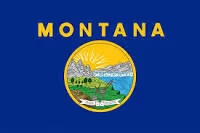Top-Rated Debt Collection Agency in Colorado
Swift and Trustworthy Debt Collection in Colorado - no initial fees, pay only when we succeed. Request a FREE Consultation or submit your claim today.

Maximize Your Debt Recovery in Colorado with Debitura's Superior Collection Services
Maximize Your Debt Recovery in Colorado with Debitura's Superior Collection Services. Debitura stands as a premier Debt Collection Agency in Colorado, armed with the expertise to handle your hard-to-collect accounts and bolster your business cash flow. We're no stranger to Colorado's local debt collection landscape and regulations, making us a trusted partner for businesses seeking effective, professional, and compliant debt recovery solutions. Embrace the Debitura difference and ensure your partnership with us translates to recovered debts and peace of mind. You'll wonder how you ever managed your business debts without us.

Efficient, comprehensive A-Z debt recovery solutions in Colorado.

Data-driven, personalized debt recovery in Colorado

Leveraging a global network of 500+ international debt collection professionals.

87% successful debt recovery rate in Colorado.
Key facts
- Debt Collection Laws: Colorado's Fair Debt Collection Practices Act provides additional protections for consumers beyond federal laws.
- COVID-19 Protections: Debtors facing financial hardship due to COVID-19 can suspend collection actions until June 1, 2021.
- Depository Account Exemption: Up to $4,000 in a debtor's depository account is exempt from levy and sale until June 1, 2021.
- Communication Rules: Debt collectors cannot contact consumers before 8 a.m. or after 9 p.m., or at work if prohibited.
- Consumer Rights: Consumers have the right to dispute a debt in writing and stop communication with debt collectors.
- Prohibited Conduct: Debt collectors cannot harass, oppress, or abuse consumers, or use false or misleading representations.
- Legal Remedies: Violations of the Colorado FDCPA can result in complaints to the Attorney General's office or civil lawsuits.
- Statute of Limitations: The statute of limitations for written contracts is 3 years, and for oral contracts is also 3 years.
- Interest Rate Limits: Colorado's consumer loan interest rate limit is 12%, with a maximum contracted rate of 45%.
- Small Claims Limit: The small claims limit in Colorado is $7,500, with no more than two claims per month and 18 per year.
This guide is not legal advice and laws/rules may change; consult a qualified professional for personalized assistance. Use at your own risk.
Introduction to Debt Collection In Colorado
Debt collection is a process that creditors, or third-party agencies hired by creditors, undertake to secure unpaid debts from consumers or businesses, also known as debtors. This practice is a key aspect of commerce, where it plays a pivotal role in maintaining a functional and balanced credit economy. It forms a bridge between creditors who lend money and debtors who owe them, ideally leading to circumstances where all outstanding debts are settled efficiently and within the boundaries of local and federal laws.
In the debt collection process, there are key actors involved. The debtor is the individual or business entity that has borrowed money or goods, and has not yet repaid in full. A creditor might be a bank, credit card company, service provider, or other financial institution that has extended credit or lent money to the debtor. Lastly, a collection agency is brought in when a debtor has faltered on their payment responsibility, and the creditor requires assistance to recover their owed money.
Stages in Debt Collection
Debt collection typically progresses in stages, beginning with a pre-legal phase. Here, the debtor is informed about the unpaid debt and given a chance to settle it. This is often facilitated through letters of demand, phone calls, emails, and other methods of communication. The aim is always first to seek a resolution without legal implications, safeguarding the relationship between debtor and creditor and reducing potential costs.
If the debtor does not respond in a satisfactory manner to the pre-legal operations, the debt collection process may move on to the legal phase. At this juncture, formal legal proceedings may be initiated. These could involve filing a claim in court, acquiring a court judgment, and potentially litigating the dispute in a court setting. Legal proceedings can be both time-consuming and expensive, therefore, are typically viewed as a last resort.
Finally, if the court rules in favor of the creditor, a debt enforcement phase ensues. This is where the debtor is legally obliged to fulfill the debt obligation. The nature of enforcement can vary, depending on the specifics of the case and local debt collection laws. Debt enforcement might involve wage garnishment, asset seizure, or imposing liens on property. In Colorado, these stages are managed within the framework of state-specific laws and regulations that balance the rights of the debtor and the creditor.
Debt Collection Laws in Colorado
In Colorado, as in other states, debt collection processes are regulated by both federal and state laws. At the federal level, laws such as the Fair Debt Collection Practices Act (FDCPA), the Fair Credit Reporting Act (FCRA), the Telephone Consumer Protection Act and numerous others set base standards nationwide on how debt collection agencies can operate and how they can impact debtor's credit ratings. These laws are enforced and overseen by regulatory bodies, including the Consumer Financial Protection Bureau (CFPB) and the Federal Trade Commission (FTC).
The FDCPA, being one of the main federal laws, prohibits collection agencies from using unfair, deceptive, or abusive practices to collect debts. This includes certain restrictions on when a collector can contact you, misrepresentation of the amounts owed, false threats of legal action, and a myriad of other boundaries designed to protect consumers from harassment and undue harm.
Alongside these federal protections, each state can establish its own rules governing debt collection practices. In Colorado, this state-specific oversight is provided by the Colorado Fair Debt Collection Practices Act (Colorado FDCPA).
Colorado Fair Debt Collection Practices Act
The Colorado FDCPA works in tandem with the federal FDCPA, adding extra protections for Colorado consumers. This state law applies specifically to debt collectors and collection agencies. These entities must possess a valid license under Colorado state law to operate within the state.
With the enactment of the Colorado FDCPA, the state has also put specific restrictions on what's classified as "extraordinary" collection actions. For instance, until June 1, 2021, a judgment creditor cannot commence new "extraordinary" collection actions like garnishments or attachments unless certain conditions are met.
Furthermore, the Colorado FDCPA also provides additional account protections for consumers. For instance, from June 29, 2020, through to June 1, 2021, up to $4,000 stored in a debtor's depository account was exempt from levy and sale under a writ of attachment or execution.
Understanding the Provisions of Colorado FDCPA
In similarity with the federal FDCPA, the Colorado version of the law imposes restrictions on how debt collectors can gather information about consumers, gives consumers the right to dispute a debt in writing, and have it validated by the debt collector before collections can proceed.
Debt collectors in Colorado also have to abide by guidelines regarding the time, place, and method of communication with debtors. They cannot contact consumers before 8 a.m. or after 9 p.m., communicate with consumers if they are represented by an attorney (unless the attorney fails to respond or consents to direct communication), or contact consumers at work if it is prohibited by the employer. Consumers also have the right to stop communication with debt collectors by notifying them in writing.
However, protection against overbearing practices is a crucial part of the Colorado FDCPA. Debt collectors are prohibited from harassing, oppressing, or abusing consumers, or using false or misleading statements. Prohibited conduct includes threats, use of offensive language, publishing lists of consumers who refuse to pay debts, and making false affiliations to government or credit reporting agencies.
Legal Remedies under the Colorado FDCPA
If a debt collector violates the provisions of the Colorado FDCPA, consumers have several options for seeking legal remedies. Firstly, they can file a complaint with the Colorado Attorney General's office, which has the power to investigate and take disciplinary or legal action against the offender.
Alternatively, consumers also have the right to bring a civil lawsuit against the collector or the collection agency, potentially recovering actual damages and additional damages up to $1,000 for any violation under Colorado FDCPA. It's important to note that losing such a lawsuit may result in the consumer being mandated to pay the debt collector's attorney fees and costs.
Finally, it is crucial to understand that while violations of the FDCPA may offer consumers legal recourse, it does not make the debt disappear. Creditors can still take legal actions to collect the debt, necessarily through more legitimate and respectful methods.
Risk Free Debt Collection
Upload your claim and get started with our 100% no-cure-no-pay collection solution.
The Debt Collection Process In Colorado
In Colorado, the debt collection process follows a specific set of steps, initiated when a debtor fails to meet their financial obligations. The process is both methodical and regulated, designed to protect the rights of debtors while ensuring creditors are able to recoup owed money.
Evaluating the Case
The first step in the debt collection process involves evaluating the debt. Collectors must ascertain if it falls within the Colorado statute of limitations, which states that the recovery of debts via written contracts or oral agreements is time-bound to a period of three years.
This evaluation includes understanding the nature of the debt, verifying the validity, and ensuring the right to collect it. Given the additional consumer protections provided by Colorado's Fair Debt Collection Practices Act, adhering to the legality of the process holds significant importance.
Debt collectors also need to respect any temporary suspensions due to circumstances such as COVID-19, which could affect the debtor's immediate ability to repay the debt.
Pre-Legal Phase
Known as the amicable phase, this step involves contacting the debtor via multiple channels. The intention is not only to inform the debtor about the pending debt but also to negotiate an amicable payment plan if possible. In keeping with Colorado's FDCPA, communication should not happen before 8 a.m. or after 9 p.m., and not at the debtor's workplace, if it's forbidden.
In this stage, the debtor has the right to dispute the debt and may opt to stop communication with the creditor until such dispute is resolved. Any confirmed harassment, oppression, or use of misleading representations by the debt collector is prohibited and can be reported.
It’s important for both parties to understand the negotiation process can be fluid, with the objective of reaching an agreement beneficial to both the creditor and debtor.
Legal Evaluation and Considerations
Post the amicable phase, the case is re-evaluated. The decision is whether to push the matter to small claims court or proceed with more formal legal action. The small claims limit in Colorado is $7,500, with no more than two claims per month and 18 per year.
This step may also involve seeking advice from a lawyer to ensure all actions align with Colorado's FDCPA and to prepare for the possible outcomes.
Ensuring the right course of action is taken plays a critical role in the efficiency and effectiveness of debt collection.
Initiating legal action and enforcement
If no amicable resolution is found, collectors might proceed with legal action. This could involve taking the case to small claims court or engaging a lawyer to initiate a lawsuit. The choice often depends on the nature and amount of the debt.
Once a judgment has been made in favor of the collector, the process of enforcing the debt begins. This might include wage garnishment or seizing property.
In Colorado, up to $4,000 in a debtor's depository account is exempt from levy and sale. This exemption protects a portion of the debtor's income for essential living costs.
In conclusion, the debt collection process in Colorado is comprehensive and regulated to ensure fair treatment for all parties. Understanding this process is vital for both collectors and debtors, highlighting respect for consumer rights and compliance with legal requirements.
Statute of Limitations in Colorado
In the realm of debt collection, understanding the concept of the Statute of Limitations can be key in navigating the process. Essentially, a statute of limitations sets the maximum period which one can wait before filing a legal claim, depending on the type of debt. In the context of debt collection, it refers to how long a debt collector has to sue you to collect an unpaid debt. This period differs between states, and thus we will delve into the specifics of Colorado.
In Colorado, the pertinent laws can be found in Colo. Rev. Stat. § 13-80-101 et seq. The length of this period depends on the nature of the debt in question. For written contracts, debt collectors have three years to initiate a claim. This expands to six years in most debt cases, including rent. If the breach of contract is tortious, the period shortens to two years. Likewise, for oral contracts, the general limitation is three years, yet it increases to six years for short-term debt and rent and decreases to two years if the breach is tortious.
There are also specific rules for injury cases and property damage cases in Colorado. For most injury cases, the period is typically two years, however, it slightly extends to three years if injuries result from motor vehicle accidents. Similarly, for property damage, the limitation is typically two years; again, this extends to three years if the damage results from motor vehicle accidents. It is crucial to understand these intricacies, as they directly impact the potential actions of debt collectors and consequently, the strategies of those in debt.
Why Statute of Limitations Matters in Debt Collection
The relevance of the statute of limitations to debt collection is multifold. Firstly, it confines the window during which a lawsuit can be initiated by a creditor or debt collector. This means that once the limitations period on a debt has passed, a debtor can theoretically allude legal actions regarding the payment of that debt. However, it doesn’t mean the debt no longer exists or that collectors will stop attempting to collect on it. Rather, it merely impacts the legal pathway that creditors can take towards collection.
Moreover, the criterion used to determine when the statute of limitations begins to run is often the date of last activity or the date of delinquency on the account. Hence, acknowledging the debt, making a payment, or even implying that one might pay the debt might reset the clock on the statute of limitations.
Lastly, it’s important to remember the Statute of Limitations does not prevent debt collectors from attempting to collect on the debt. They can still call and send you letters to encourage payment. Nonetheless, their ability to successfully sue you diminishes after the limitations period has passed, making it a fundamental consideration in the overall process of debt collection in Colorado.
Interest Rates on Late Payments in Colorado
In the context of debt collection, interest rates on late payments are crucial. They determine the additional amount a debtor will owe to the creditor if the payment is not made by the due date. These rates are set by individual U.S. states and are often referred to as usury rates. Understanding these rates, along with the relevant laws and regulations, is essential not only for creditors but also for debtors, as it can greatly impact the total amount of debt.
In Colorado, the rules pertaining to interest on late payments are defined by statutory laws. The state law caps consumer loan interest rates at 12 percent but this does not apply to savings and loans, mortgages, business loans, and agricultural loans. This is noteworthy because, despite the legal cap, consumers often agree to higher rates either at the inception of the loan or at a later stage by clicking 'I agree' on a web platform, thereby accepting the higher interest rates.
If there is no agreement to the terms of the loan, the interest rate is limited to 8 percent by law. In case of non-consumer loans, the state of Colorado has one of the highest interest rate limits in the country, which is 45 percent. A key fact to take note of is that exceeding this limit constitutes a violation and is classified as a Class 6 Felony, punishable by 12 to 18 months in prison and a fine ranging from $1,000 to $100,000.
Details About Interest Rate Limits in Colorado
It is important to be aware of these specifics regarding interest rate limits in Colorado:
- The legal maximum rate of interest is 8% if there is no agreement; the maximum interest rate that can be agreed upon is 45%; and the interest on a consumer loan may not exceed 12% unless made by a supervised lender.
- Knowingly charging more than 45% interest can lead to a Class 6 felony charge.
- For judgments, the interest rate is 8% if none is specified in the contract; if the contract rate is variable, then the rate applicable on the day of the judgment is charged.
- These rate limits exclude savings and loans, mortgages, and business and agricultural loans.
Note that state laws are constantly evolving through new legislative actions, appeals court decisions, ballot initiatives, etc. Therefore, it is always advisable to verify the current law.
The Concept of Usury
The term usury came into use in the Middle Ages, referring to any type of interest charged for lending money. Though it originally had a negative connotation, over time, the term has come to refer specifically to exorbitant or excessively high interest rates. Modern governments have established interest rate ceilings, commonly known as usury laws, to protect consumers from such rates.
In summary, understanding the interest rates on late payments and the associated laws in Colorado can protect consumers and businesses from overpaying or breaking the law. Staying informed about these rules can provide a strategic advantage in managing finances effectively.
Late Payment Fees in Colorado
One key aspect of the debt collection process in Colorado revolves around late payment fees. Defined broadly, late payment fees are additional charges that creditors levy on a debtor when he or she fails to remit payment by the deadline set in the agreement. Not only can these costs add significantly to a debtor's financial burden, but they also hold profound implications for businesses and their collections strategies.
Understanding the specific rules regarding late payment fees is therefore crucial for businesses operating in the Colorado region. While some states impose specific limits on the size of late fees, Colorado does not have such restrictions. The state laws do not specify a maximum limit on the late fee that a company may charge. Beyond providing flexibility for businesses, this lack of regulatory limits also underscores the importance of setting reasonable and justifiable late fees based on industry standards and specific contractual agreements.
Additionally, according to Colorado state law, businesses are not legally obligated to provide a grace period before applying late payment fees. Despite this, as a best practice, we recommend businesses to consider allowing a grace period of typically seven days before applying these charges. Not only does this foster better relationships with consumers, but it also mitigates the risk of reputational harm and potential legal disputes.
The Impact of Late Fees
The application of late payment fees carries significant implications for both businesses and debtors. For businesses, these fees represent an attempt to recoup some of the financial losses resulting from delayed payments. Companies might find this practice beneficial when dealing with clients who consistently fall behind on payments and accrue substantial outstanding balances.
For customers, however, these additional charges can compound their indebtedness, making it harder to pay off debts. It’s crucial then, for businesses to ensure that late payment fees are reasonable and communicated effectively in original credit agreements. Clear communication on late fees can facilitate payment and maintain a positive relationship with customers.
In conclusion, while Colorado state law gives businesses considerable latitude in setting late payment fees, the responsibility lies with each business to implement fair and reasonable practices. By providing a grace period and ensuring their late fees align with industry standards, enterprises can uphold their integrity while still protecting their financial interests.
Small Claims Procedures in Colorado
Small claims procedures refer to the simplified legal processes designed to resolve disputes involving minor civil cases, typically those concerning debts or money owed. In the state of Colorado, this process is regulated by the Colorado Revised Statutes (Colo. Rev. Stat.) §§ 13-6-401 to 13-6-417 and overseen by the County Court’s Small Claims Division. More information can be freely accessed on their official website as well as the Colorado government’s legislative legal services website.
The monetary amount that can be sought in a small claims court in Colorado is capped at $7,500. If the plaintiff's claim exceeds this amount, they may waive the balance to come within the $7,500 limitation, but they can't split their claim into multiple cases to get over this limit. Additionally, a plaintiff can only file a maximum of two claims per month and 18 within a calendar year, preventing abuse or overuse of the small claims court.
The appropriate venue for filing a small claim case is determined based on the defendant’s place of residence, place of work, educational institution, business office, or depending on the case, the location of the property under dispute. Personal service by a process server or disinterested adult, or certified mail sent by the court clerk ensures defendants' due notice of the proceedings.
Representation in Small Claims Court
In Colorado, one of the many benefits of small claims court procedures is the ability for parties to represent themselves, lessening the financial and logistical burden of hiring legal representation. However, defendants or plaintiffs who are attorneys are allowed to represent themselves. Simultaneously, authorized full-time employees or active members, active general partners, or full-time officers of the organization involved in the lawsuit can represent entities such as corporations, partnerships, unions, or associations. If an attorney does appear under these provisions, the other party is also permitted to have one. But it's important to note that a seven-day written notice is required for attorney representation.
If a defendant’s counterclaim exceeds the $7,500 limit, the case can be transferred out of the small claims court. This ensures a fair and just legal process for all parties involved.
A key characteristic of small claims court in Colorado is the absence of jury trials and the non-acceptance of eviction cases. The cases are decided by the judge, ensuring a quick and efficient resolution to disputes.
Appeals and Judgement
Any judgement handed down by the small claims court can be appealed by either party within 14 days after the date of entry of judgement. It ensures that the defendants and plaintiffs have the opportunity to contest the ruling if they believe that there was an error.
In conclusion, the small claims procedures in Colorado provide a quick, efficient, and cost-effective means to resolve minor civil disputes, particularly those related to debt collection. Understanding how this process works can empower individuals and businesses to seek legal remediation independently, ultimately supporting a fair environment for debt collections.
Wage Garnishment in Colorado
Wage garnishment, a legal procedure utilized to recover debt, occurs when a judgment creditor requires an employer to withhold a portion of a debtor's earnings and deliver it directly to the creditor. The main goal of this process is to enable a creditor to collect on their judgment without the necessity for voluntary payment on the part of the debtor.
In Colorado, there are specific laws that regulate wage garnishment, which are essential for every business professionals and individuals alike to understand. The Association of Credit and Collection Professionals (ACA) closely monitors these laws to ensure that everyone abides by them and that they efficiently serve their purpose in the debt collection process.
Detailed understanding is significant because improper wage garnishment can lead to severe repercussions, including penalties and lawsuits. To effectively safeguard the rights and practices of both debtors and creditors, Colorado's government implements limitations and legislates rules regarding wage garnishment procedure.
Specific Rules for Wage Garnishment in Colorado
Firstly, Colorado law permits wage garnishment, but it also provides protection to a certain portion of the debtor's earnings. Specifically, the law allows withholding of the lesser amount between 25% of a debtor's disposable income or the amount by which a debtor's weekly earnings exceed thirty times the federal minimum hourly wage.
Secondly, employers are obliged to provide an accurate and precise account of the debtor's gross earnings for the first pay period, less deductions required by law. This detailed report assists in calculating the allowable amount of wage garnishment. Incorrect calculation may lead to wrongful garnishment and open avenues for further complications.
Finally, special statutes apply for specific types of debts. For example, when it comes to debts regarding child support, alimony, student loans, and tax payments, the wage garnishment limits might vary. As a result, understanding the nuances of these wage garnishment rules is crucial for proper application and avoiding legal issues.
In conclusion, wage garnishment in Colorado plays a significant part in debt collection. Notwithstanding, staying informed about the specific rules and procedures of wage garnishment is fundamental to maintain professional practice, ensure rights protection, and promote a balanced system for both debtors and creditors.
.webp)
.png)
.avif)
.avif)
.avif)
.avif)
.avif)
.avif)
.avif)

.avif)

.avif)






.svg.avif)




.avif)
.avif)

.avif)
.avif)



.avif)



.svg.avif)

.avif)

.avif)
.avif)
.avif)
.avif)
.avif)
.avif)
.avif)
.avif)
.avif)
.avif)
.avif)
.svg%20(1).avif)
.svg)

